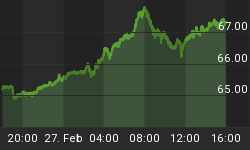Today we have more nonsense on seasonal adjustments coming from the labor department.
First-time claims for state unemployment benefits rose by 7,000 to 319,000 last week, the Labor Department said Thursday.
The gain was in line with expectations on Wall Street.
A "significant" portion of the gain was due to annual auto plant retooling and to schools closing for the summer, a Labor Department spokesman said without providing more details.
Seasonal adjustments by the government statisticians attempt to account for recurring events such as school vacations and plant closings for retooling, but the process is inexact.
I have two questions for the labor department
1) If the process is inexact then how do you know that a "significant portion" was specifically due to plant retooling and schools closing for the summer?
2) If you do know that a "significant portion" was specifically due to plant retooling and schools closing for the summer, then why didn't you seasonally adjust for it in the first place?
Of course this is one of the reasons top economists like Paul Kasriel at Northern Trust does not put much stock in any of these "adjusted numbers".
Let's take a look at what Paul Kasriel has to say:
"I'm not a big fan of the monthly Employment Situation Report. It's a one-week snapshot of payrolls. It has all kinds of estimates (e.g. small business "birth/death" model) built into it. Being that seasonal adjusting is an art, not a science, I am skeptical of the adjusted data. And the revisions are massive.
Conversely, I am a big fan of the state unemployment data on an unadjusted basis. Folks who have been laid off have an incentive to get in line and be counted. There are no well-intentioned-but-impossible-to-accomplish assumptions in the unadjusted data. Those who are in line get counted. Moreover, the Conference Board puts initial jobless claims in its index of leading economic indicators whereas nonfarm payrolls are relegated to the index of coincident indicators."
Here are a couple of charts courtesy of Paul Kasriel.
Initial Claims - 4 Week Average
Continuing Claims - 4 Week Average
I would have to concur with this statement by PK:
"The state unemployment data are sending an unambiguous message that the labor market is losing its forward momentum."
Those trends are far more important that a statement made by some clown at the labor department trying to explain why they know both how and why the adjusted numbers are wrong yet they failed to do their job properly adjusting the numbers in the first place.















